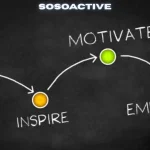How can we help seniors dealing with exaggerated grief? Grief can be overwhelming, but for some older adults, it may seem more intense and prolonged.
This exaggerated grief can be caused by various factors. This can include isolation, health issues, or past losses. Seniors may struggle with processing their emotions, leading to feelings of sadness or confusion.
It’s important to understand their unique needs and offer the right kind of support. In this article, we’ll explore effective ways to help seniors cope with exaggerated grief. Read on to provide comfort during a difficult time.
Understanding Exaggerated Grief
Exaggerated grief in seniors can cause intense emotional pain. This reaction may be more severe than typical responses to loss. It often leads to prolonged sadness, anxiety, and physical symptoms.
Seniors dealing with exaggerated grief may feel hopeless or fatigued. They might also become socially withdrawn. Recognizing these signs helps caregivers and family members provide the right support.
How to Offer Support
When helping seniors with exaggerated grief, it’s important to be empathetic and understanding. Here are some effective strategies:
Encourage Open Communication
Creating a safe space for seniors to express their feelings is important. Encourage them to talk about their grief and emotions. This helps them feel heard and supported.
Listening actively and empathetically is key. Validate their experiences without judgment. This process can be very healing and reduce feelings of isolation.
Facilitate Support Groups
Sharing with others who have similar experiences can ease loneliness. It also offers valuable perspectives on grief. Encourage seniors to join support groups for those dealing with loss.
Support groups provide a safe space to share feelings. They can help normalize emotions and reduce isolation. These groups foster a sense of community and connection.
Engage in Activities Together
Encouraging social or recreational activities can help distract seniors. Simple outings like coffee, walks, or workshops offer valuable breaks. These activities also provide chances to connect with others.
Spending time together on hobbies or interests can promote healing. It fosters a sense of normalcy and joy. Quality time is essential for emotional recovery.
Create a Routine
Creating a daily routine can help seniors regain control. Predictable schedules provide comfort and reassurance. A structured day helps them navigate emotional challenges.
Regular activities like meals, exercise, and social interactions offer stability. These can become anchor points in their day. A routine brings structure and reduces feelings of uncertainty.
Seek Professional Help
If seniors continue struggling with exaggerated grief, professional help may be needed. A qualified therapist can offer valuable support. Grief counseling for seniors can make a significant difference.
Therapists help seniors work through their emotions. They provide coping strategies to manage grief. This guidance helps seniors process their loss in a healthy way.
Helping Seniors Find Healing
Understanding exaggerated grief in seniors and how to support them is essential. Caregivers and family members must practice empathetic listening. Encouraging social connections and seeking professional help can significantly aid their healing.
Remind your loved one that they are not alone during this time. With patience and care, they can work through their grief. Together, you can help them find a path to healing.
Looking for more tips and advice? Browse our other blog posts for more information.







